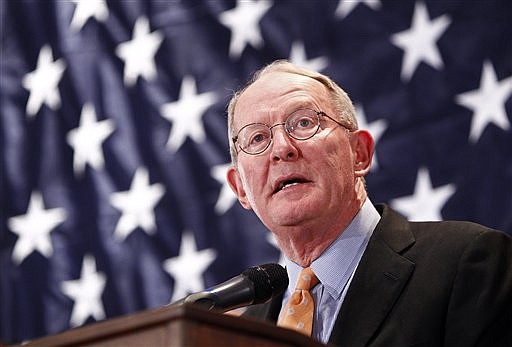WASHINGTON -- A Senate committee began debating legislation Tuesday that attempts to fix the much-maligned No Child Left Behind education law by giving states more control in determining how to hold public schools accountable for student performance.
The early focus among lawmakers was aimed at giving states opportunities to reduce the amount of time students are focused on testing and preparing for tests.
Leaders of the committee have worked behind closed doors for months to reach a bipartisan consensus on how to revamp a Bush-era law that has been a candidate for reauthorization since 2007. Now the hard work begins with lawmakers from all political leanings getting an opportunity to shape the bill through amendments.
The White House has cheered the Senate efforts. Meanwhile, efforts to pass legislation in the House managed to alienate conservatives as well as Democratic lawmakers, but for different reasons.
"If fixing No Child Left Behind were a standardized test, Congress would have earned a failing grade for each of the last seven years," said Lamar Alexander, the Republican chairman of the Senate Committee on Health, Education, Labor and Pensions, prompting laughs from some in the audience.
The committee passed seven amendments and voted down two. It will continue to debate the bill on Wednesday.
No Child Left Behind sought to close significant gaps in the performance of poor and minority students and their more affluent peers and was designed to hold schools more accountable for the federal dollars they get. It required annual testing in reading and math for students in grades three to eight and again in high school. Schools that didn't show growth faced consequences, with parents eventually having the option of transferring their children to another school.
Last week, Alexander announced that he had reached consensus with Sen. Patty Murray, the committee's senior Democratic member on a blueprint that cedes more control to states while also maintaining the annual standardized tests that show how well students are learning.
"We found no issue stirred as much controversy as testing," Alexander said. "The more we studied the problem, the issue seems not to be the 17 federal tests," Alexander said. "Instead, the problem is the federal government's accountability system for what to do about the results of these tests."
Sen. Tammy Baldwin, D-Wis, offered an amendment that provides grant money to states for audits designed to examine assessments and eliminate those they find ineffective.
"Some of this testing is duplicative and outdated," Baldwin said.
Republican Bill Cassidy of Louisiana spoke in favor of Baldwin's amendment. A similar scene took place on a handful of early proposals and lawmakers appeared to take great pains to strike a bipartisan tone. Still, there were clear differences that point to future speed bumps.
Sen. Tim Scott, R-S.C., told the committee he would bring to the Senate floor an amendment that would give states the option of letting federal funding follow a child to whichever school they ended up attending, including private schools. He said school choice is one of the best paths of ensuring low-income children with a quality education, but Democratic lawmakers like Murray and Sheldon Whitehouse objected, saying taxpayer dollars shouldn't be used to subsidize private school education. It was one of nine amendments that lawmakers brought up but chose to withdraw for future negotiations or to bring up on the Senate floor.
The first amendment to go down to defeat came from Democratic Sen. Elizabeth Warren of Massachusetts who sought to require that states and local school districts explain the criteria they use to evaluate teachers, but Alexander opposed the effort, saying he wanted to move Washington away from saying how teachers should be evaluated. Warren said the amendment was about improving transparency, but Alexander's sentiment prevailed as the amendment was defeated along party lines.
Republican Sen. Rand Paul, a presidential candidate who has been critical of No Child Left Behind over the years, did not attend the hearing but did vote by proxy on several amendments.
